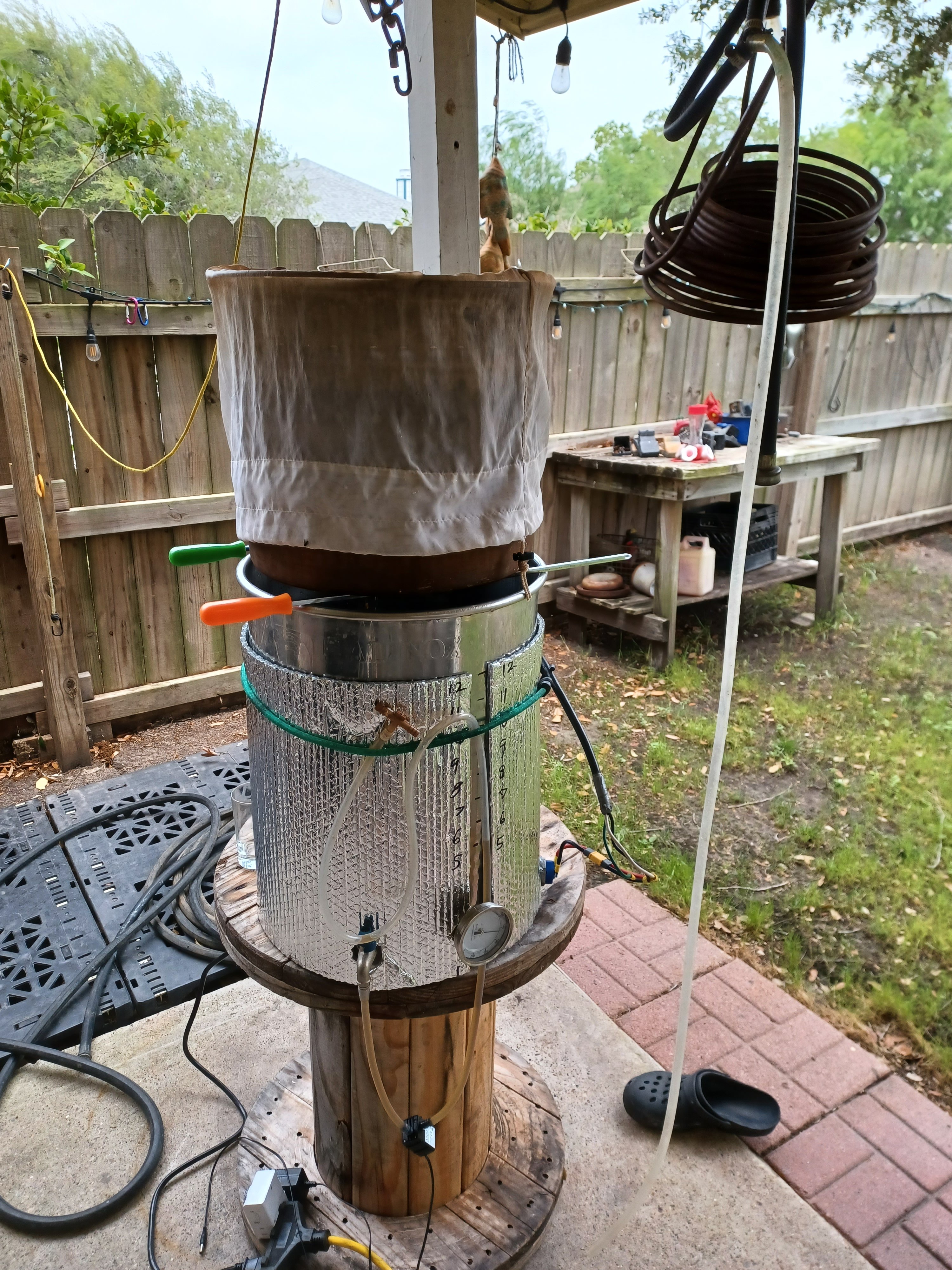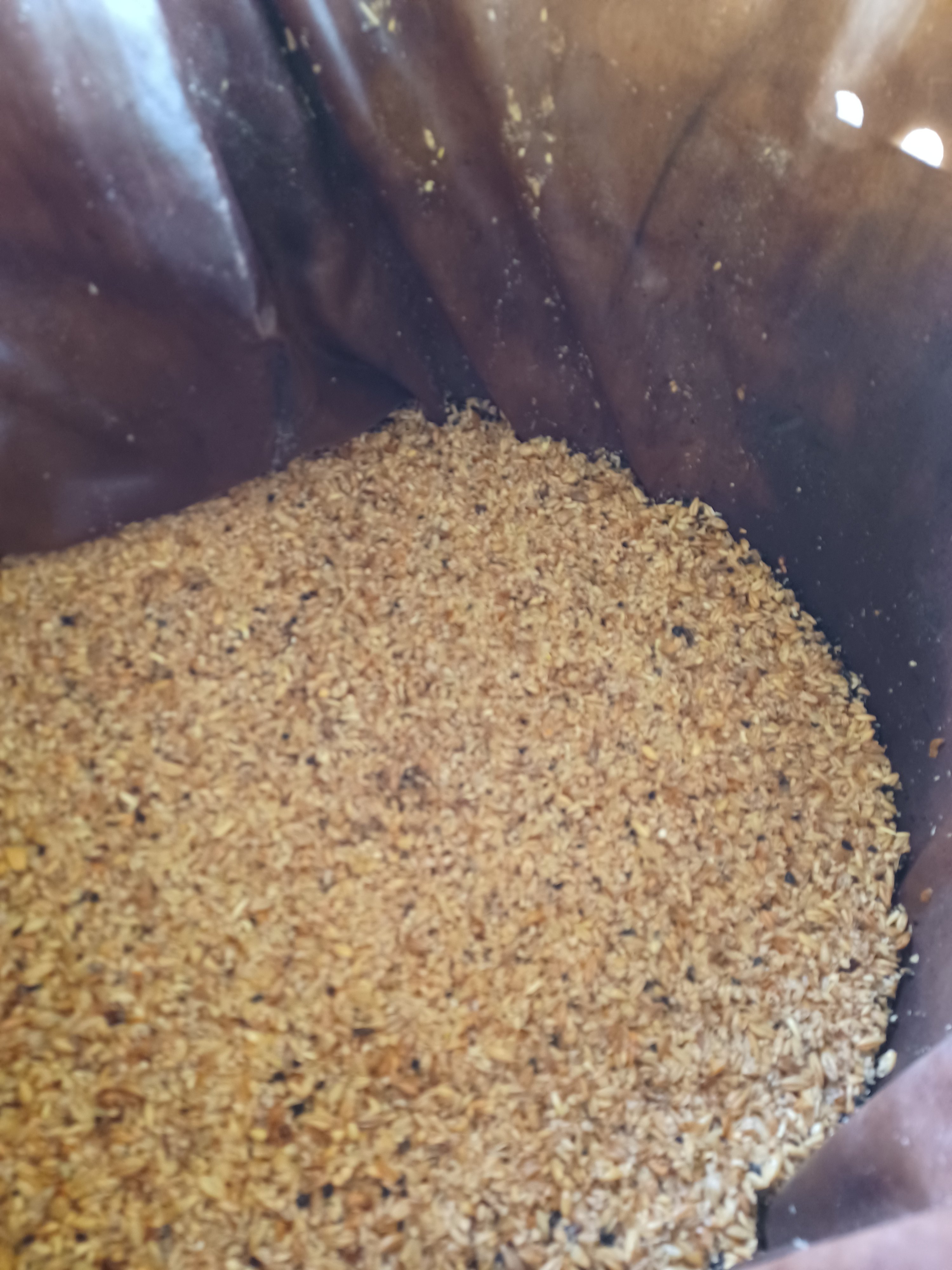I ran into basically the same problem as the OP today. I have a 14g pot, but I am wanting to make 9.5g of beer, so the water+grain is too much for my 14g to hold if I don't add water.
I used an old refigerator grate that rests on top of the kettle after pulling the grains out, I set it on that, works fairly well but the wet grains tend to not want to sit there, and when trying to pour hot water over the grains to rinse it gets all over the place. Today ended up spilling some grains into the kettle, and spilling water/drained wort all over. What a mess! I used a clean bag to just filter out the grains for the wort, so I believe it should be fine.
\
Instead of about 12 preboil i ended up with about 9g, just made sure to match the pre-boil gravity I was aiming. We shall see how the end results turns out!
I thought about trying to us a bucket, but they aren't really wide enough to fit 20+ lbs of grain.
I guess I need to maybe get a super wide mouthed container, and rinse in there.
Anyone have ideas for something larger than a standard bucket size to sparge in that isn't too expensive?
I use the pot I used before I moved to 10 gallon batches for sparges. It's 50 quarts. I keep it next to the regular brew kettle, and have a second pulley set above it. I hoist the bag out with the first pulley, let it drain, then hook in the second pulley and loosen the first. The grain bag then gets guided to the sparge pot with ~5 gallons of room temp water in it. Untie, stir, let it sit a few minutes, then hoist it out again. After it drains I guide the bag of grains into a plastic bucket, dump the sparge into the main kettle (which is already on the way to boiling), and continue the boil.












































![Craft A Brew - Safale S-04 Dry Yeast - Fermentis - English Ale Dry Yeast - For English and American Ales and Hard Apple Ciders - Ingredients for Home Brewing - Beer Making Supplies - [1 Pack]](https://m.media-amazon.com/images/I/41fVGNh6JfL._SL500_.jpg)














